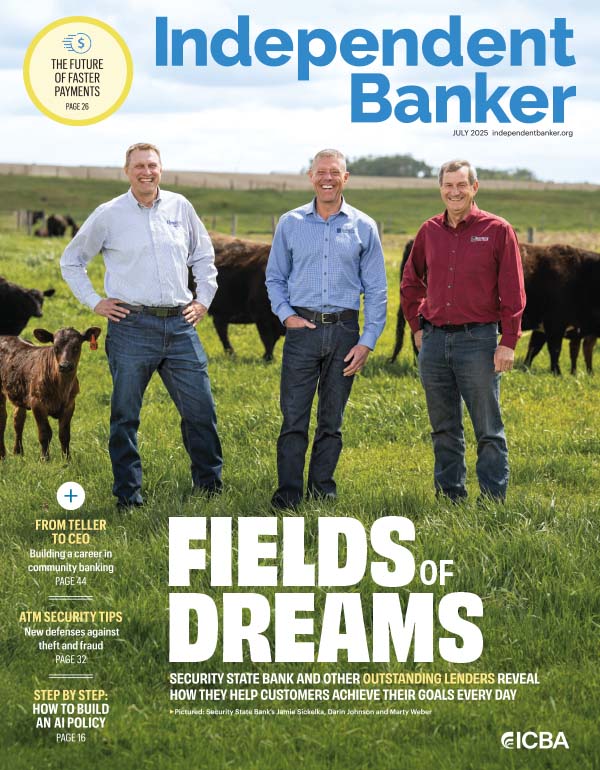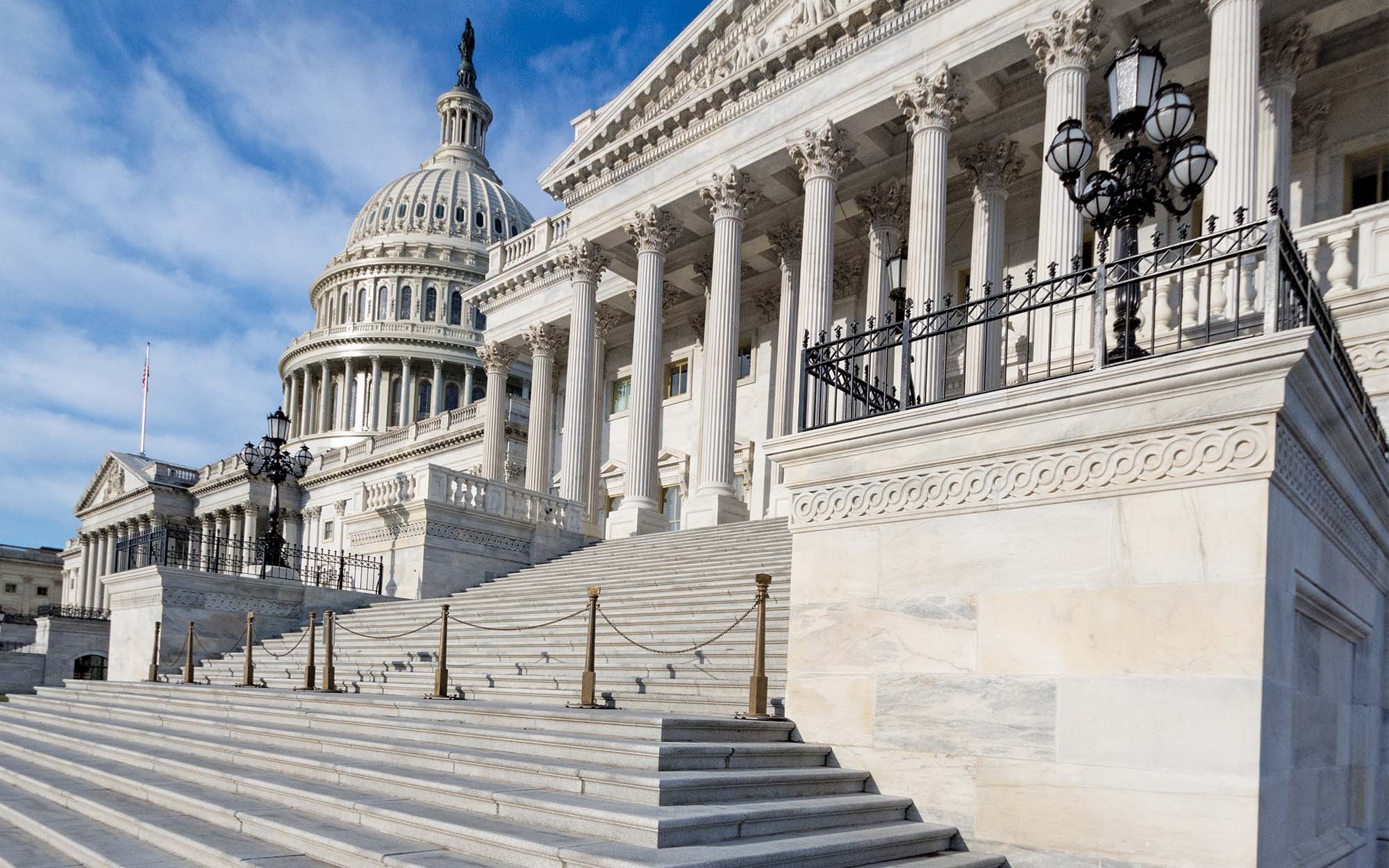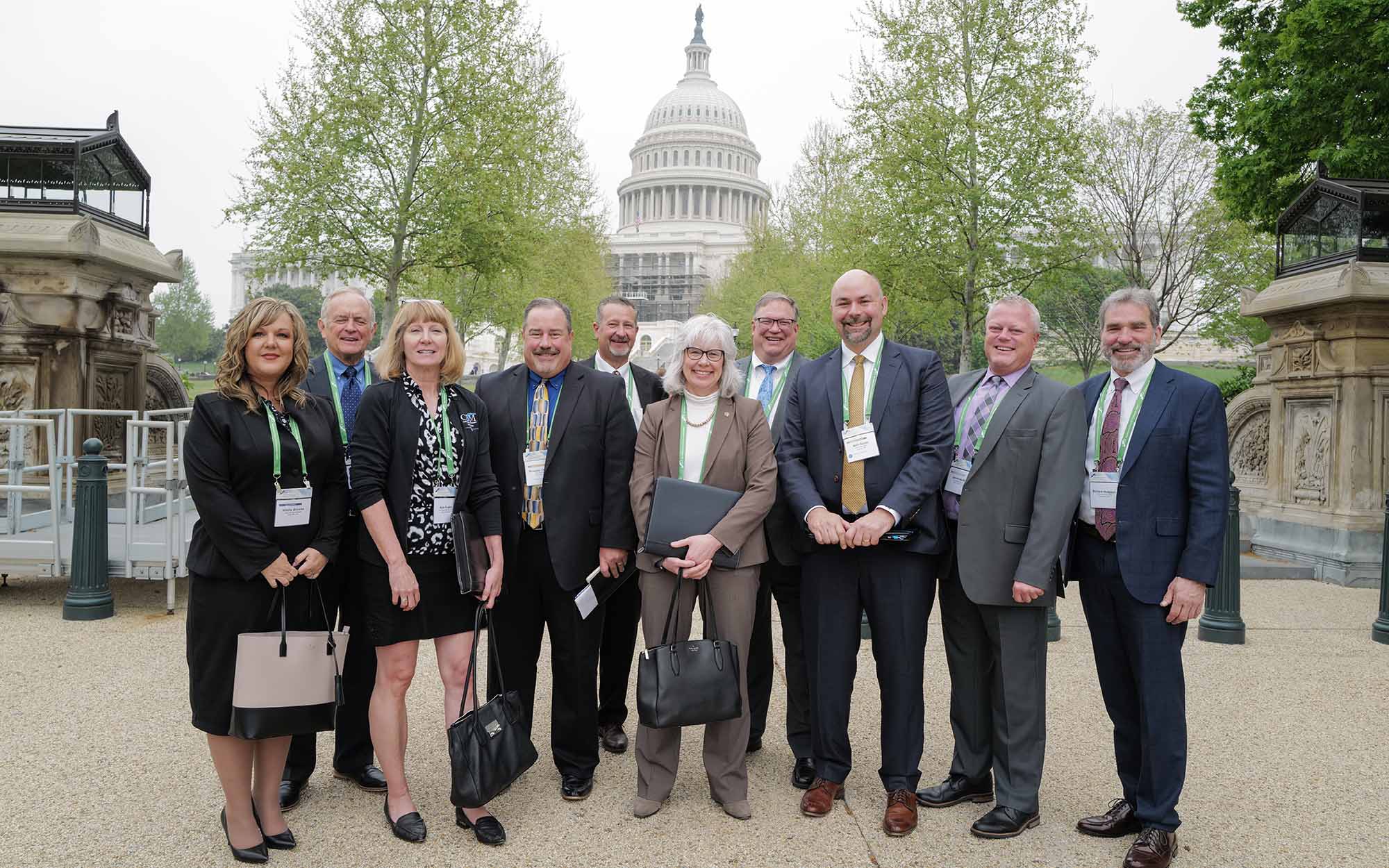When the 118th U.S. Congress convenes Jan. 3, more than 80 new members of the Senate and House of Representatives will be sworn in—up from just over 50 in 2021. These members and their staff come from all kinds of backgrounds with varying experiences and perspectives.
As they find their footing on Capitol Hill, learning the ins and outs of their new roles, ICBA is there to help them understand the strength of community banks and the critical role they play in economic prosperity in the U.S.
This is the main mission of ICBA’s New Member Outreach Program, where ICBA’s congressional relations team reaches out to all new members of Congress and their staff. As a nonpartisan organization, ICBA seeks to greet and work with senators and representatives from all parties.
Many community bankers have already cultivated relationships with their elected members at the local level, making it easier for ICBA to connect and engage in legislative advocacy.
The New Member Outreach Program is more than a feel-good program that shows off the human side of community banking; it also focuses on the facts. Members of Congress and their key staff learn that community banks play an outsize role in supporting small businesses, making half of all small business loans under $1 million and 80% of bank agriculture loans. They hear how community banks led the way in Paycheck Protection Program (PPP) lending, ensuring that struggling small businesses had access to capital at a critical moment.
These educational sessions also dig into the direct impact community banks have in each congressperson’s district. It’s not just about branches and employees; ICBA shares details on the number and dollar amount of loans originated in home districts or states—including small business, commercial real estate, agriculture and mortgage lending.
ICBA also uses these meetings to set the stage for discussions about regulatory relief for community banks by showing that the financial services industry can’t be painted with a broad brush. Our congressional relations staff highlights the differences between locally focused, taxpaying community banks and the megabanks, credit unions and government-sponsored entities.
This gives ICBA the opportunity to open discussions about key legislative priorities, including pushing back against Small Business Administration (SBA) direct lending, credit card routing mandates, and climate risk management and regulation aimed at community banks. We explain why tax-advantaged credit unions and the Farm Credit System has unfair advantages that stymie community bank competition.
In addition, ICBA flexes the depth and breadth of its advocacy reach, highlighting our active partnership with 44 vibrant affiliated state groups.
Adhering to the spirit of community banking, ICBA also offers itself as a resource to members of Congress and their staff when they have questions about banking. No matter how intelligent a member or their staff is, no one comes to Washington knowing about every issue they will be called to vote upon. Offices are responsible for tracking hundreds of issues and have limited resources and in-house expertise.
ICBA’s congressional relations staff makes themselves available to provide credible, factual information about banking industry issues—whether it’s discussing the pros and cons of a specific bill, helping them address constituent questions or connecting them with a community banker in their district or state. The goal is to build a partnership with open dialogue.
Grassroots plus ICBA outreach yields success
While reaching out to more than 80 new members is a big job, the good news is that not every relationship will need to be built from scratch. Many community bankers have already cultivated relationships with their elected members at the local level, making it easier for ICBA to connect and engage in legislative advocacy.
To help identify members of Congress with existing relationships with community bankers, ICBA is conducting its State of Advocacy survey. It allows community bankers to identify and log their personal and professional relationships with lawmakers and regulators—in addition to measuring the awareness, importance and effectiveness of ICBA’s grassroots advocacy efforts.
Running through mid-February, the survey helps ICBA fine-tune its advocacy strategy, identifying the best opportunities for making inroads as well as the members who have the least exposure to community banking.
ICBA also pays close attention to committee assignments, making a special effort to reach out to members assigned to committees of particular importance to community banks, including tax writing, financial services, small business and agriculture.
Whether in-person or virtual video meetings, ICBA’s lobbyists are ready to start making congressional connections that will lead to legislative success through this session of Congress and beyond. Building working relationships with members of Congress and the influential staff members that inform their decision-making helps make that a reality.
It also requires help from community bankers. Be on the lookout for the State of Advocacy Survey this month. Let ICBA know about relationships you’ve nurtured with members of Congress and their staff.
And make a point of reaching out and congratulating the new members yourself. Advocacy begins with you!






